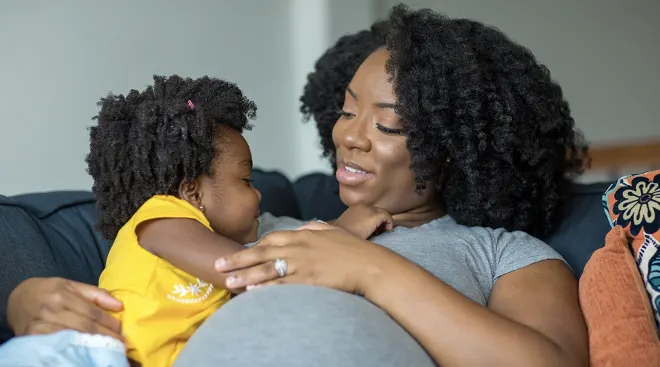1 in 3 Counties Don't Have a Single Obstetrician, Report Shows
Where you live shouldn’t be a determining factor in the health and safety of you and your baby, but unfortuantely for millions of parents-to-be in America, this inequality is a reality.
According to 2024 report by The March of Dimes, millions of American women don’t have access to the maternity care they need. This is partly because 1 in 12 women of childbearing age (19-64) or 2.3 million live in maternity care deserts—counties where access to maternity healthcare services is limited or absent, either through lack of services or barriers to a woman’s ability to access that care.
A staggering 150,000 babies were born in these counties in 2022, where a lack of care leads to poor maternal health outcomes, a higher rate of premature births and rising maternal mortality rates.
Factors contributing to maternity deserts and inadequate care:
- Lack of access to hospitals with obstetric care or birth centers. Over half of U.S. counties still lack a hospital or birth center with obstetric services, a problem exacerbated by rural hospital closures and low insurance reimbursement rates. This shortage worsens as financial struggles force hospitals to close their obstetric units.
- Limited or no access to obstetric providers, midwives or doulas. The shortage of obstetric clinicians, including Ob-gyns, midwives and family physicians trained in obstetric care, persists. Fewer than 10 percent of obstetric providers practice in rural areas and several states have laws that prevent doulas or midwives from practicing to the full extent of their training and ability.
- Inadequate or no health insurance. While the rate of uninsured women has improved, over 11% of women ages 19 to 64 in the U.S. still lack health coverage, preventing access to necessary prenatal and postpartum care. Without adequate coverage, women face higher risks of poor maternal outcomes.
Because of these factors, the absence of preventive, prenatal and postpartum care dramatically contributes to poor maternal health outcomes. There’s evidence that adequate prenatal care beginning in the first trimester can decrease the likelihood of adverse birth outcomes. Women who do not receive prenatal care are also 3 to 4 times more likely to have a pregnancy-related death than women who receive any prenatal care.
So what can we do to eliminate maternity care deserts and increase quality care in the US?
Some of the solutions March of Dimes suggests include:
- Implement perinatal regionalization, a strategy to improve both maternal and neonatal outcomes. By coordinating a system of care within a geographic area, pregnant women would receive risk-appropriate care in a facility equipped with the proper resources and health care providers.
- Expand Medicaid and extend Medicaid postpartum coverage to 12 months. Research shows that states that expand Medicaid improve the health of women of childbearing age by increasing access to preventive care, reducing adverse health outcomes before, during and after pregnancies, and further reducing maternal mortality rates.
- Increase access to midwives. Access to midwives can help improve access to maternity care in under-served areas, reduce interventions that contribute to maternal mortality, lower costs and improve the health of moms and babies.
- Reimbursement for doula care. Support increased access to doula care as one tool to help improve birth outcomes and reduce the higher rates of maternal morbidity and mortality among women of color in the US.
- Provide coverage for telehealth services for pregnant and postpartum women. If women can’t travel to locations with maternity care, telehealth care provides a valuable way to bring the care to them.
Outside of these actions, March of Dimes adds that paid family leave, implicit bias education and more research are all needed to address poor maternal health outcomes. Learn more about how you can advocate for maternal health policies and check out organizations like the Chamber of Mothers and MomsRising, which are dedicated to advancing mothers’ rights.
Navigate forward to interact with the calendar and select a date. Press the question mark key to get the keyboard shortcuts for changing dates.





















































